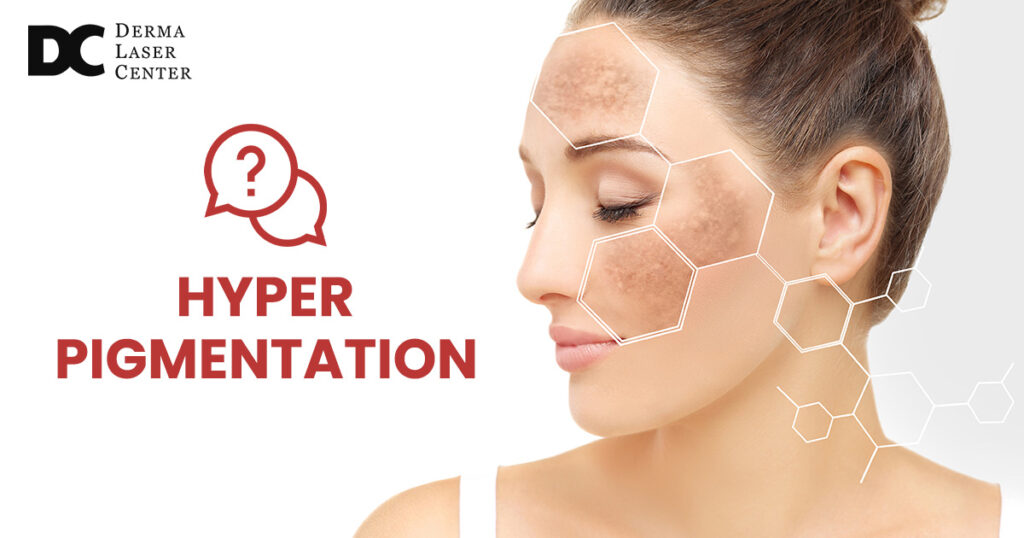
If your skin remains uneven despite applying topical treatments like hydroquinone and vitamin C, you might be dealing with hyperpigmentation. Getting rid of hyperpigmentation takes more than just over-the-counter products, and for some people, professional treatments may be necessary to achieve clearer, even skin.
In this guide, we’ll explain what hyperpigmentation is, how it affects your skin, and the main causes behind dark spots. We will also cover effective hyperpigmentation treatment options, including professional care at Derma Laser Center NJ, to help you reduce pigmentation and restore your skin’s natural, even tone.
What Does Hyperpigmentation Mean, and How Does It Affect Your Skin?
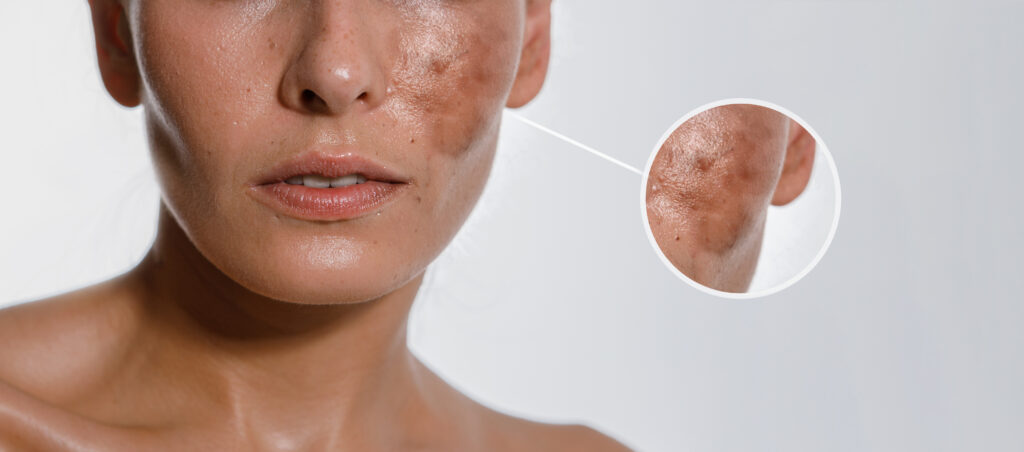
Hyperpigmentation is a condition where certain patches of skin become darker than the surrounding areas. “Hyper” means excess, and “pigment” refers to the skin’s color. These dark patches can appear in shades of brown, black, gray, red, or pink. Different types of hyperpigmentation include:
- Sunspots/Age Spots: Sunspots, also known as age spots or liver spots, are dark marks caused by prolonged sun exposure. While the terms are often used interchangeably, sunspots are primarily the result of UV radiation, which triggers excess melanin production in the skin. Age spots, on the other hand, develop over time due to cumulative sun exposure, usually appearing after the age of 40. They are more prevalent in older adults and tend to be more widespread.
- Melasma (Chloasma, “Mask of Pregnancy”): Melasma is characterized by large, dark patches of skin, often appearing symmetrically on the face, especially on the forehead, cheeks, and upper lip. It is commonly triggered by hormonal changes during pregnancy, birth control use, or hormone replacement therapy. It predominantly affects women, particularly those with medium to darker skin tones.
- Post-Inflammatory Hyperpigmentation (PIH): PIH occurs when the skin darkens in response to injury or inflammation, such as after acne, eczema, or a burn. These dark spots appear where the skin has healed, and the pigmentation can occur anywhere on the body. PIH is more common in people with darker skin tones.
What Causes Hyperpigmentation? Understanding the Key Triggers of Dark Spots and Skin Discoloration

Melanin is the pigment responsible for the color of our skin, hair, and eyes. When the skin produces an excessive amount of melanin, dark spots or patches can develop, leading to hyperpigmentation. This condition can be caused by a variety of factors, such as:
- Sun Exposure: Ultraviolet (UV) rays stimulate the production of melanin as the skin’s natural defense mechanism. Prolonged exposure to the sun can lead to dark spots, commonly known as age spots or sunspots, particularly in areas frequently exposed to UV radiation, such as the face, hands, and shoulders.
- Hormonal Changes: Fluctuations in hormones, particularly during pregnancy or with the use of birth control, can result in conditions like melasma. This often causes symmetrical dark patches on the face, especially on the forehead, cheeks, and upper lip.
- Skin Inflammation and Injury: Conditions like acne, eczema, or other skin injuries can lead to post-inflammatory hyperpigmentation (PIH). The skin darkens after healing from inflammation or trauma, leaving behind darker spots in the affected area.
- Genetics: Some individuals are genetically predisposed to produce more melanin. This can increase the likelihood of developing hyperpigmentation, especially in response to environmental or hormonal factors.
How Is Hyperpigmentation Diagnosed? What Are the Methods Used by Dermatologists to Identify the Cause of Dark Spots?
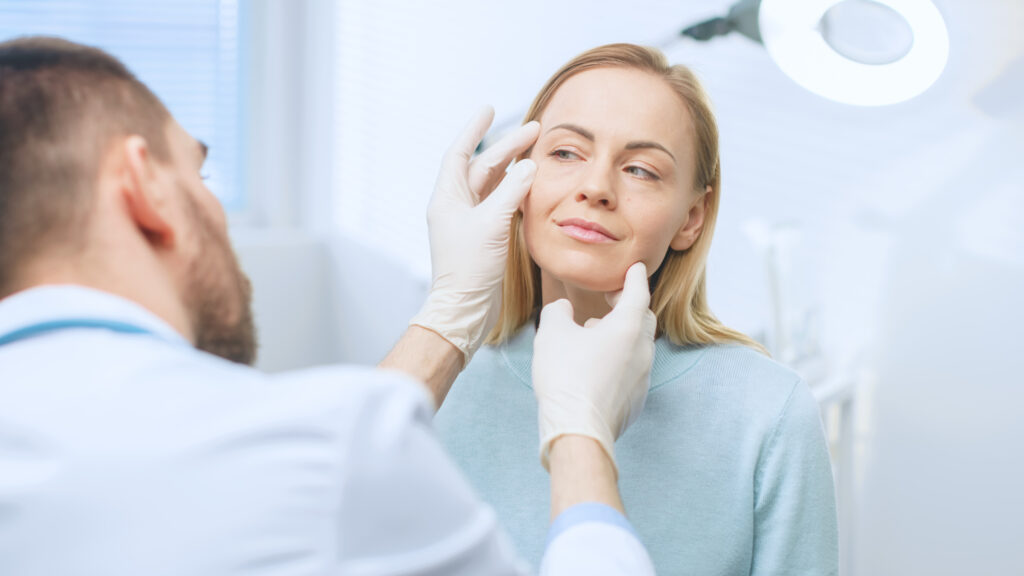
To effectively diagnose hyperpigmentation, it is essential to consult with a skin specialist who can assess your skin and determine the cause of the dark spots. Dermatologists utilize several methods to evaluate the condition, such as:
- Visually Examining Your Skin: The dermatologist will begin by performing a thorough visual examination of the dark spots. This allows them to assess key characteristics such as size, shape, color, and distribution, which provide important clues about the underlying cause of the hyperpigmentation.
- Reviewing Your Medical History: A detailed review of your medical history will help the dermatologist understand any relevant factors that could contribute to your condition. This may include discussing your sun exposure, medications, hormonal changes, and any skin conditions that may influence pigmentation.
- Performing a Dermoscopy: In certain situations, a dermoscopy is conducted to provide a closer look at the pigmentation. This technique allows dermatologists to magnify the skin’s surface, making it easier to distinguish between different types of pigmentation and accurately determine the cause, whether it’s sun-induced, hormonal, or caused by skin trauma.
How to Treat Hyperpigmentation? What Are the Best Treatment Options for Reducing Dark Spots and Restoring Even Skin Tone?
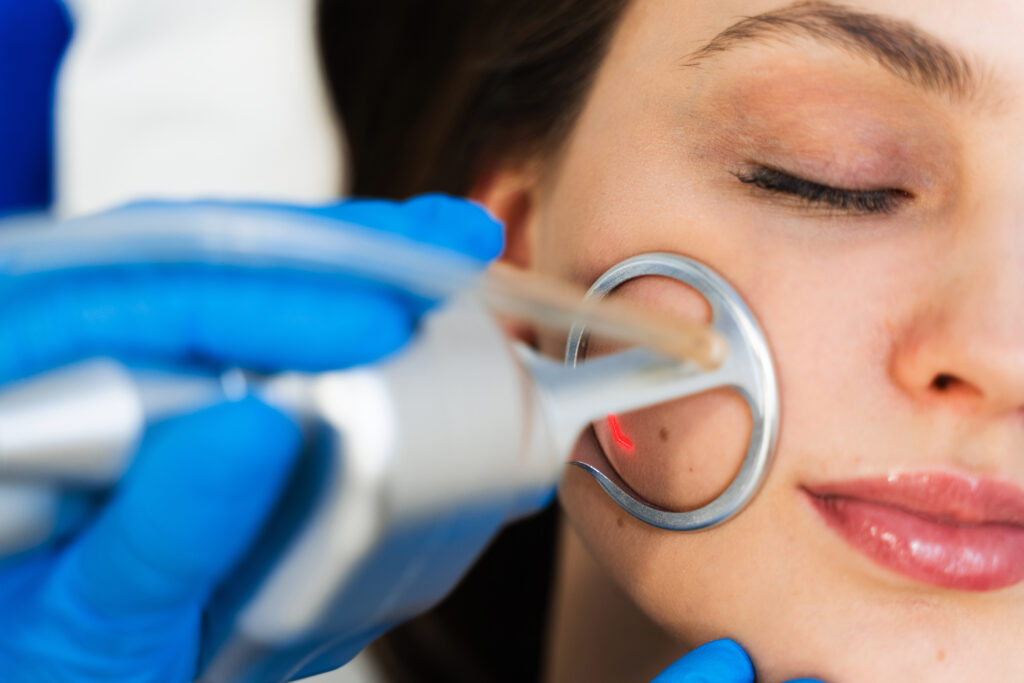
Treating hyperpigmentation without understanding the underlying causes can lead to ineffective results or even worsen the condition. After identifying the root cause of your hyperpigmentation, the next step is to implement a treatment plan that is specifically suited to address that cause.
- Topical Treatments (Sun Exposure-Related Pigmentation): When hyperpigmentation is triggered by UV exposure, leading to sunspots or age spots, treatments such as hydroquinone, vitamin C, and retinoids can be highly effective. These ingredients work by reducing melanin production and lightening existing dark spots, which helps prevent new pigmentation from developing over time.
- Hormonal-Related Hyperpigmentation (Melasma): Melasma, which is often caused by hormonal changes related to pregnancy or birth control, responds well to treatments like prescription-strength hydroquinone, chemical peels, and laser therapy. These treatments target the deeper layers of the skin, effectively breaking down the excess melanin responsible for the dark spots.
- Post-Inflammatory Hyperpigmentation (PIH): For PIH resulting from acne or skin trauma, treatments like retinoids, glycolic acid, and chemical peels can effectively accelerate skin renewal. These treatments work by exfoliating the skin and promoting the regeneration of new, even-toned skin. In addition, Rejuvapen microneedling can be an effective complementary therapy, stimulating collagen production and improving overall skin texture and tone.
- Hyperpigmentation Laser Treatment (General Hyperpigmentation): Hyperpigmentation laser treatment effectively treats hyperpigmentation such as sunspots, age spots, and melasma. Laser Pigment Removal, using the FDA-approved KTP 532 Diolite laser, targets excess pigment in the skin, perfect for treating superficial discoloration. For deeper pigmentation or persistent spots, CO₂ Laser Resurfacing stimulates collagen production and improves skin texture, making it ideal for deep or stubborn pigmentation.
For some, a combination of targeted skincare and advanced treatments may provide the best results for eliminating dark spots. This is why it is important to consult with a skin specialist who can evaluate your condition and develop a customized treatment plan tailored to your specific needs.
How Can I Prevent Hyperpigmentation? Practical Tips for Protecting Your Skin and Reducing the Risk of Dark Spots

While it sounds cliche, preventing hyperpigmentation is far less complicated than treating it once it occurs. Simple preventive measures, such as applying sunscreen with at least SPF 30 every day and limiting sun exposure during peak hours, can go a long way. Other ways you can prevent hyperpigmentation from developing include:
- Wearing Protective Clothing: Covering your skin with hats, sunglasses, and clothing can shield it from direct sun exposure, further reducing the risk of developing dark spots.
- Avoiding Tanning Beds: Tanning beds expose your skin to harmful UV radiation, which can trigger hyperpigmentation. Avoiding these devices can help keep your skin safe.
- Maintaining a Consistent Skincare Routine: Using gentle skincare products and avoiding harsh exfoliation can help keep your skin barrier intact and minimize irritation that may lead to post-inflammatory hyperpigmentation.
- Addressing Hormonal Changes: If you experience hormonal fluctuations, particularly during pregnancy or with birth control use, consult a dermatologist for treatments that can help manage melasma or other hormonal pigmentation issues.
Achieve Smooth, Even Skin with Derma Laser Center NJ
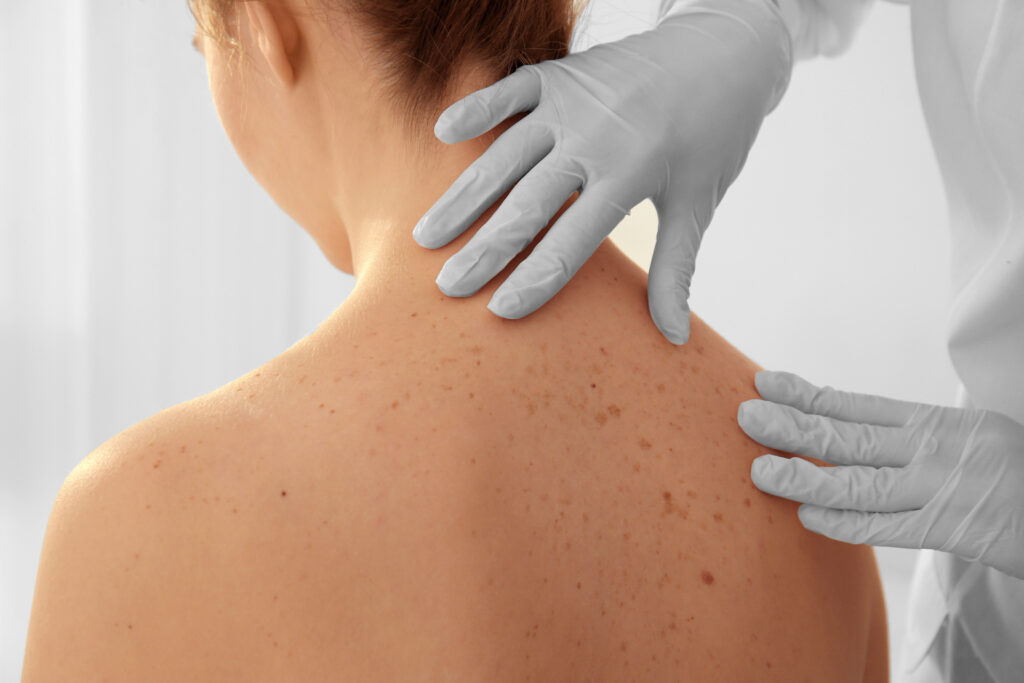
Managing hyperpigmentation requires a comprehensive approach, from understanding the triggers to choosing the right treatments. Whether it’s sunspots, melasma, or post-inflammatory hyperpigmentation, the right care can significantly improve your skin’s tone and texture. By taking a proactive approach, you can achieve smoother, more even skin over time.
At Derma Laser Center NJ, we specialize in advanced treatments designed to address various forms of hyperpigmentation. From targeted laser therapy to personalized skincare routines, we offer effective solutions that are tailored to your skin’s specific needs. Schedule a free consultation today and learn how we can help you achieve a clear, even complexion.



Leave a Reply